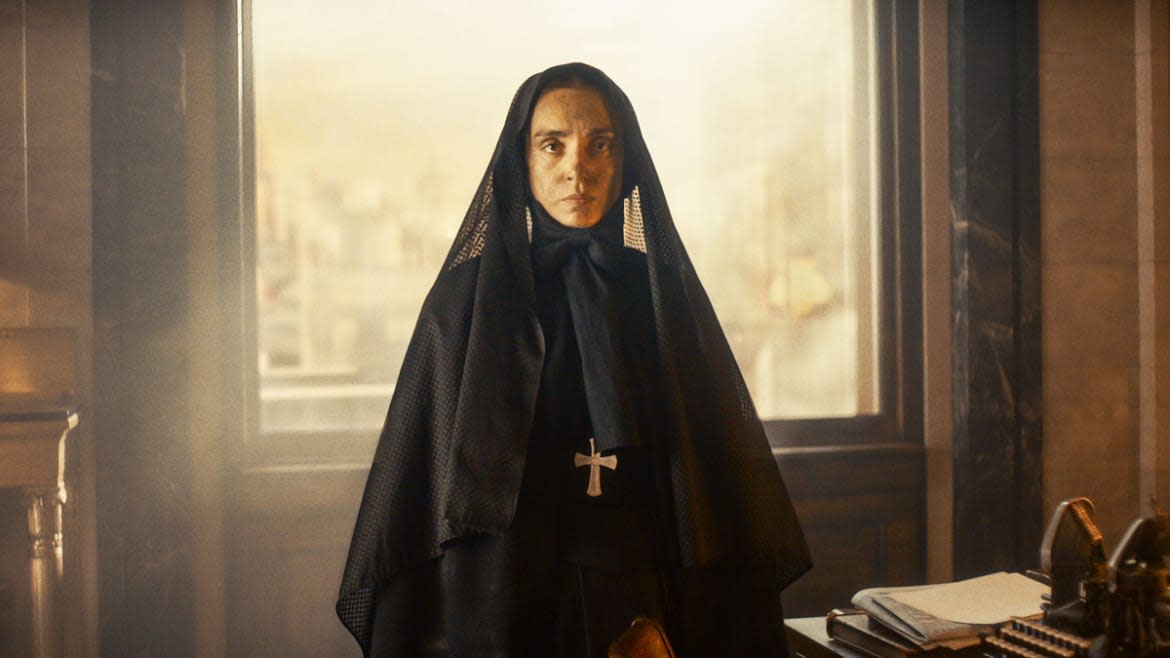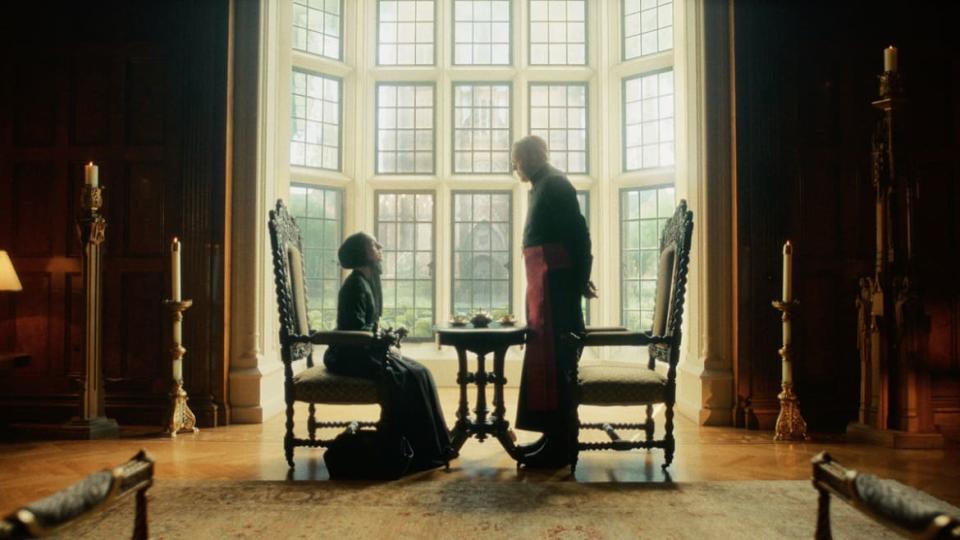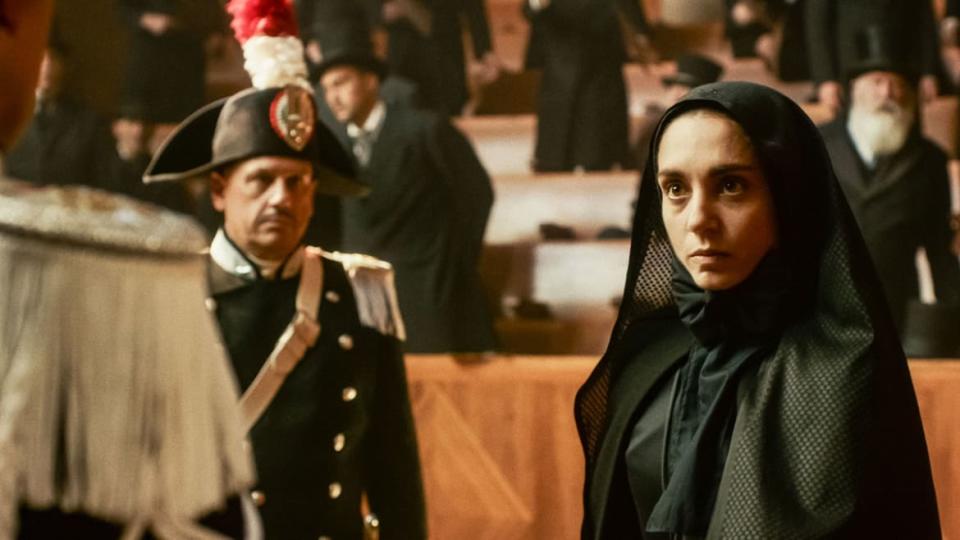Even the MAGA Crowd Will Be Bored by New Movie From Director of ‘Sound of Freedom’

Last year, it was hard to avoid Sound of Freedom, the Christian-themed thriller starring Jim Caviezel as Tim Ballard, a real-life former U.S. government operative dedicated to rescuing children ensnared in sex trafficking. A hit with MAGA and QAnon crowds, the film was among 2023’s highest-grossers, in part thanks to a pay-it-forward strategy by faith-based distributor Angel Studios, which has backed projects, as its website puts it, with “wholesome content.” A culture-war lightning rod, Sound of Freedom was a phenomenon more for the surrounding controversy than for anything in the movie, a rudimentary procedural juiced by hyperbolic moral outrage and littered with creepy, anonymously pedophilic bad guys. Imagine a feature-length Law & Order: Special Victims Unit with a bigger budget for exotic location shooting.
Sound of Freedom was directed by Alejandro Monteverde, and this Friday his new movie hits theaters. But those attending Cabrini hoping for more hot-potato discourse—or another overheated story of a red-blooded American kicking some ass—will be sorely disappointed. A muted drama about Mother Francesca Cabrini, the Patron Saint of Immigrants who moved from Italy to New York at the end of the 19th century, determined to care for the city’s homeless, Cabrini is a respectful biopic designed to shed light on a forgotten woman whose charitable acts deserve recognition. It’s also so stultifyingly dutiful you may find yourself missing Sound of Freedom’s tawdry watchability.
Cristiana Dell’Anna plays this strong-willed Italian nun, who has been assigned to Five Points. In 1889, Manhattan was rife with poverty, illness, and racism, with the locals resenting the recent influx of Italian immigrants. Cabrini sees how badly her people are treated in America—hospitals won’t treat Italians, and the unfeeling Archbishop (David Morse) dismisses her activism as futile—but her resolve is unwavering. An entire city of bigots and sexists, including the smug Mayor Gould (John Lithgow), won’t stop her from rescuing those in need, especially innocent children. Resilience is practically etched on her face.
There are fleeting pleasures to a picture like Cabrini, which introduces us to a resourceful, underestimated hero who knocks down every obstacle in her path. For 140 minutes, Cabrini stares down the immovable social forces that jeopardize real-world change: economic inequality, racism, institutional bureaucracy. Dell’Anna is a hushed but formidable force, mostly eschewing big speeches in favor of the relentless pestering and finagling that are crucial to enact meaningful social progress. Cabrini argues some people are still capable of accomplishing big things in the world. Not you or me, but somebody.

Like Sound of Freedom, Monteverde’s new film is distributed by Angel Studios, although Cabrini doesn’t shy away from criticizing the Catholic Church, which was slow to assist Cabrini, doubting that a woman could pull off the seemingly impossible. But the film shares with Sound of Freedom a fixation on beatifying its subject at the expense of exploring anyone around them. Both movies lament the plight of endangered children, but not in any concrete way—the young actors are there to be silent angels with puppy-dog eyes, uncomplicated symbols of suffering. Unlike Tim Ballard, a far more problematic figure than Sound of Freedom suggested, the real Francesca Cabrini was by all accounts an inspirational individual. But Monteverde and screenwriter Rod Barr render her as blandly valiant as Caviezel’s Ballard. Apparently, the best saints are cardboard.
Monteverde’s earlier dramas—2006’s Bella and 2015’s Little Boy—also dealt with issues of faith and morality, but it wasn’t until Sound of Freedom that he latched onto the zeitgeist. With Caviezel as The Lone Crusader Who Gives A Damn, the film was a pedestrian thriller in which his character (assisted by a cigar- and scene-chomping Bill Camp) set up an illicit underage sex club in order to bag some sickos—and rescue one particular child, a emotionally manipulative narrative device meant to personalize the horrors of sex trafficking. Sound of Freedom wasn’t good, but it had a junky, B-movie predictability to it. Plus, there was something undeniably seductive about its obsession with this repellent underworld, Caviezel’s square-jawed, teary-eyed nobility juxtaposed against the leering ugliness.

That base “Why won’t anyone think of the children?!?” titillation is what’s missing in Cabrini, which is so solemn as to feel entombed. Cinematographer Gorka Gómez Andreu drapes 1890s New York in the amber waves of ye olden times, creating a honeyed nostalgia for a bygone past in which the racism feels distant and, therefore, safe and painless. As for the sexism Cabrini encounters, she overcomes such hurdles relatively easily. Partly, that’s because the supporting players are all history-book broad, with both Morse and Lithgow stiff in their period costumes, waxworks representations of the patriarchy.
Throughout, Monteverde returns to a familiar visual tic, shooting dark interiors that are illuminated by a shaft of light jutting through a window. In his films, this technique suggests that his characters, like us, are surrounded by moral darkness, which can only be punctured by the brief rays of goodness we find in the world. It’s a striking, if clichéd, device, but as Cabrini’s stuffy earnestness lumbers along, those images begin to take on another meaning. The film strains so fervently to be wholesome—stolidly canonizing a woman who’s already a saint—that it leaves the audiences as trapped in those shadowy spaces as Cabrini. Who’s going to come rescue us?
Get the Daily Beast's biggest scoops and scandals delivered right to your inbox. Sign up now.
Stay informed and gain unlimited access to the Daily Beast's unmatched reporting. Subscribe now.
